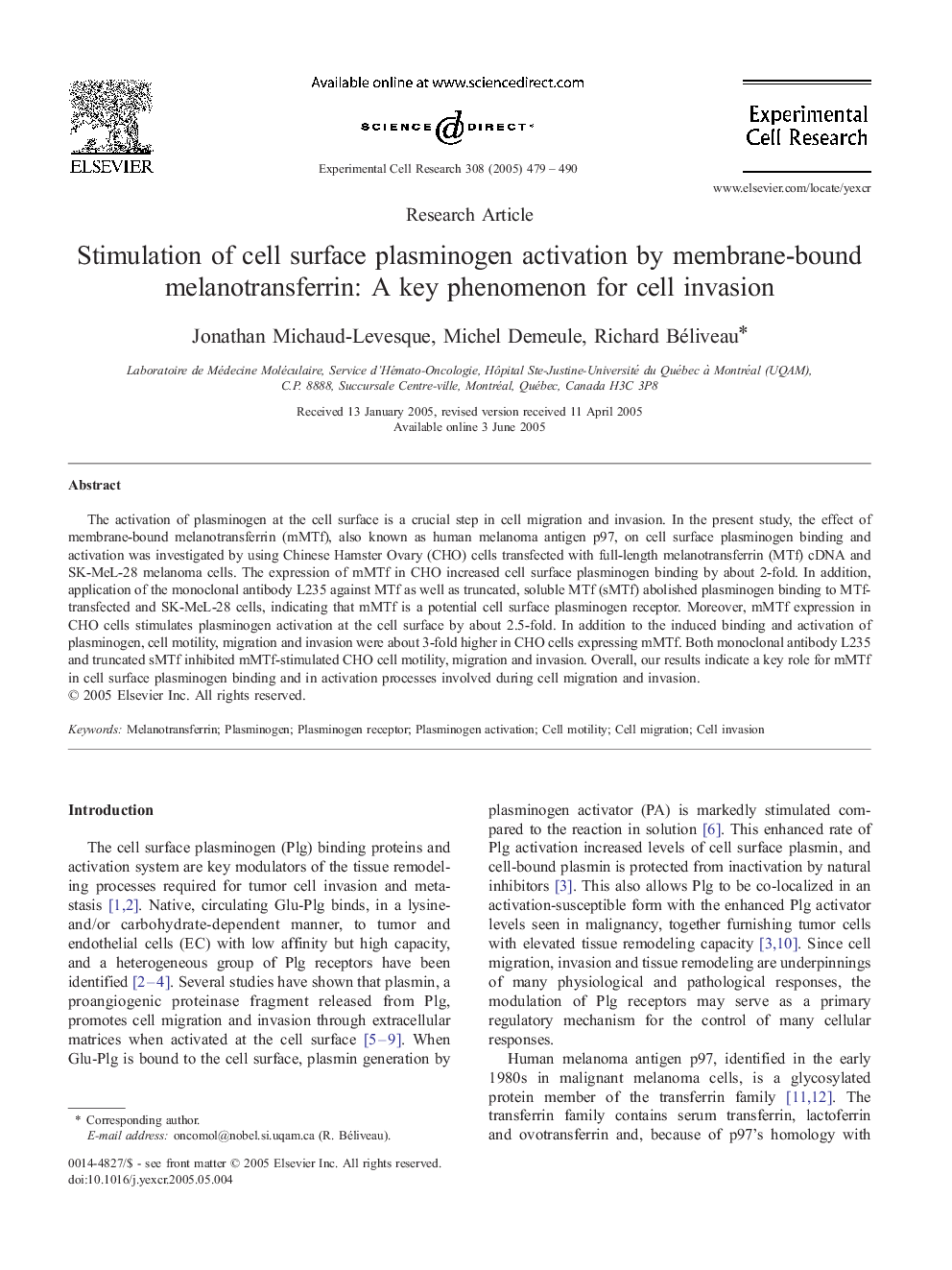| Article ID | Journal | Published Year | Pages | File Type |
|---|---|---|---|---|
| 10904936 | Experimental Cell Research | 2005 | 12 Pages |
Abstract
The activation of plasminogen at the cell surface is a crucial step in cell migration and invasion. In the present study, the effect of membrane-bound melanotransferrin (mMTf), also known as human melanoma antigen p97, on cell surface plasminogen binding and activation was investigated by using Chinese Hamster Ovary (CHO) cells transfected with full-length melanotransferrin (MTf) cDNA and SK-MeL-28 melanoma cells. The expression of mMTf in CHO increased cell surface plasminogen binding by about 2-fold. In addition, application of the monoclonal antibody L235 against MTf as well as truncated, soluble MTf (sMTf) abolished plasminogen binding to MTf-transfected and SK-MeL-28 cells, indicating that mMTf is a potential cell surface plasminogen receptor. Moreover, mMTf expression in CHO cells stimulates plasminogen activation at the cell surface by about 2.5-fold. In addition to the induced binding and activation of plasminogen, cell motility, migration and invasion were about 3-fold higher in CHO cells expressing mMTf. Both monoclonal antibody L235 and truncated sMTf inhibited mMTf-stimulated CHO cell motility, migration and invasion. Overall, our results indicate a key role for mMTf in cell surface plasminogen binding and in activation processes involved during cell migration and invasion.
Keywords
Related Topics
Life Sciences
Biochemistry, Genetics and Molecular Biology
Cancer Research
Authors
Jonathan Michaud-Levesque, Michel Demeule, Richard Béliveau,
